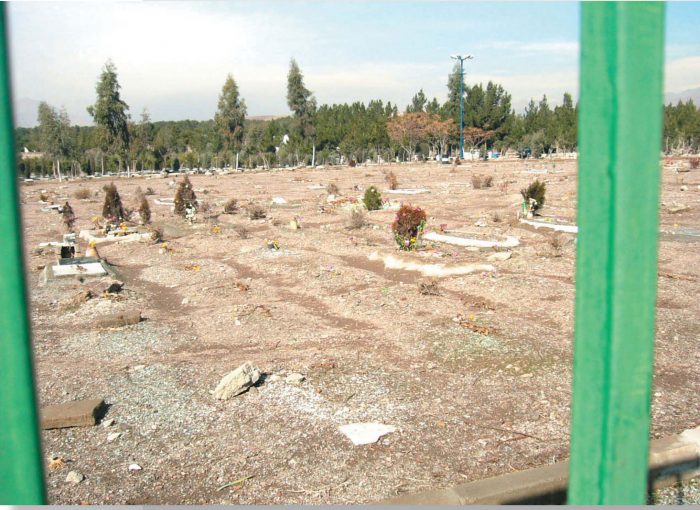The Iranian revolution brought significant change not only to Iran, but the Middle East, but it was a revolution hijacked by religious mullahs intent on creating a strict theocratic state in which power was solely vested in their rule.
As part of that process in securing its base, the Iranian regime forged a bloody history based on the ruthless suppression of dissent and the cruel imposition of the most severe penalties for anyone that stepped out of line.
This bloody birthright has marked the chief characteristic of the mullahs reign since the 1980s and a bit of that history had some light shed on it when an audio file surfaced in which Hussein Ali Montazeri, the onetime deputy supreme leader for the regime and a leading Shiite cleric, spoke out against the murder of thousands of dissidents that were part of the Mujahedeen-e-Khalq (MEK) resistance group, who had been imprisoned by the regime after the revolution.
Montazeri’s objections led to his political downfall after the estimated 30,000 Iranian dissidents were murdered in one of the largest mass killings since the end of World War II.
Montazeri died in 2009, while the country was in the middle of the post-election uprisings using the presidential election results as an opportunity to come out to the streets and protest the reign of terror and repression of the mullahs. Completely sidelined from the government, he remained a critic until his final days, publishing letters and statements against many government policies and leaders.
Since then, the Iranian regime has cut a bloody swath of death and destruction aimed at the mullahs’ perceived enemies both within and outside Iran.
Averaging almost an execution every day in 2016, the regime has quickly moved into first place among all countries in executing people on a per capita basis demonstrating for all the world to see that no matter what Hassan Rouhani has said about a new more “moderate” Iran, the regime remains firmly committed to honoring its bloody heritage.
Rooting out dissent has become a full-time obsession for the regime, which devotes considerable resources to ferreting out any possible contrarian voice, even employing one of the largest networks of cyber hackers to monitor and break into social media and messaging platforms to catch suspected dissenters.
Iranian hackers with suspected ties to the regime penetrated the messenger app Telegram to monitor activists, journalists, and others dissidents, according to cybersecurity researchers.
With the help of an Iranian phone company, the hackers broke into more than a dozen Iranians’ Telegram accounts by intercepting text messages that contained activation codes to link the accounts to new devices, Claudio Guarnieri, an Amnesty International technologist, and Collin Anderson, an independent cybersecurity researcher, told Reuters.
“A majority of what the regime calls counterterrorism activity is not focused on what you imagine — managing threats posed by terrorist groups like the Islamic State,” Michael Smith II, chief operating officer of Kronos Advisory, a defense consulting firm, told The Christian Science Monitor. “Foremost among the regime’s concerns is the preservation of its authority. So ‘counterterrorism’ often refers to managing internal anti-regime activism.”
Amnesty International also announced on Wednesday that dozens of women’s rights activists in Iran were being arrested and interrogated for spurious charges of espionage and trying to overthrow the government.
According to Mediaite, since January, more than a dozen women’s rights activists in Tehran have been summoned for long interrogations by the Revolutionary Guards and threatened with imprisonment on national security-related charges. Many had been involved in a campaign launched in October which called for the increased representation of women in Iran’s recent parliamentary elections.
Women taken in for interrogations have been given no reason for their summonses, but once inside the interrogation room were bombarded with accusations of espionage and collusion with “foreign-based currents seeking the overthrow of the Islamic Republic system”. Amnesty understands that the Revolutionary Guards subjected the women to verbal abuse, including gender-related slurs. The activists were not allowed to be accompanied by their lawyers during interrogations, which in some cases lasted eight hours.
“It is utterly shameful that the Iranian authorities are treating peaceful activists who seek women’s equal participation in decision-making bodies as enemies of the state. Speaking up for women’s equality is not a crime. We are calling for an immediate end to this heightened harassment and intimidation, which is yet another blow for women’s rights in Iran,” said Magdalena Mughrabi, Interim Deputy Middle East and North Africa Program Director at Amnesty International.
That attitude of mullahs pervades their anointed proxies as groups as such as Hezbollah and the Houthis exhibit the same bloodthirsty calculations to advance their goals. In the case of Iranian regime-backed Houthis rebels in Yemen, they have begun using hospitals as human shields from aerial attacks.
Hostilities in the Yemeni conflict resumed at the weekend following the collapse of peace talks in Kuwait. The talks came after Houthi fighters, who are backed by the regime’s Revolutionary Guards, rejected a U.N.-sponsored peace plan and announced the establishment of a 10-member governing body to run the country.
The revelation that Iranian-backed Houthi rebels are deliberately using civilian institutions for their war effort inevitably will draw comparisons with the tactics used by other extremist Islamist groups.
“It is clear that the tactics used by the Houthis, where they are using places like hospitals for their military campaign, has contributed significantly to the heavy civilian death toll,” said a senior Western official.
If breeding is an indication of future development, then the Iranian regime’s bloody start in the 1980s explains its continued bloody actions today.
By Michael Tomlinson
